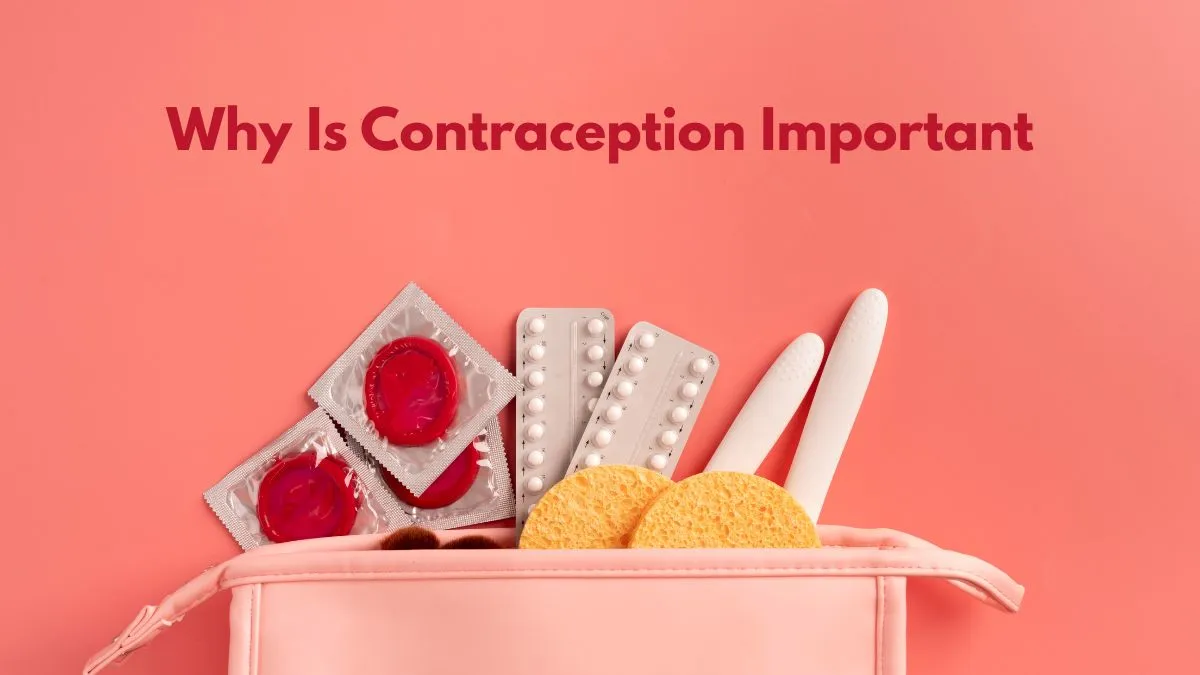
Whether in a rural or urban setting, awareness about contraception is crucial. Most importantly, everyone has the right to make reproductive choices and should know about the different avenues available to make the right choice. With this vision, the WHO has declared September 26 as ‘World Contraception Day’ with the aim of raising awareness about contraceptive methods and promoting informed decision-making regarding sexual and reproductive health. It is a global campaign that emphasises the importance of accessible family planning services for all.
Table of Content:-
On this day, we would like to emphasize the significance of Contraception and sexual health & dispel myths and misconceptions about contraception, especially among young people. Encouraging women to make choices about reproductive health and thus contributing to reducing unwanted pregnancies, unsafe abortion and reducing maternal and infant mortality rates.
Why Is Contraception Important?
According to Dr Pallavi Vasal, Clinical Director, Obstetrics & Gynaecology, Marengo Asia Hospitals, Gurugram, the benefits of Contraception are far beyond sole pregnancy prevention. Here are some of the reasons why it should be taken into consideration:
Prevents Unintended Pregnancies: According to research by the Population Council, contraception reduces the risk of high-risk abortions, miscarriages, and maternal mortality.
Reduces Cancer Risk: Long-term use of hormonal contraceptives may reduce the risk of ovarian and endometrial cancers,as per research by the National Cancer Institute. Barrier methods help in preventing sexually transmitted infections and, in turn, cervical , vulval and penile cancer.
Manages Menstrual Health - Regulates menstrual cycles, reduces heavy bleeding, and alleviates symptoms of polycystic ovary syndrome(PCOS) and endometriosis.
Improves Mental Health: Contributes to better mental health by reducing anxiety associated with unintended pregnancy.
Also Read: Are Birth Control Pills Effective During Ovulation? Know From a Gynaecologist
What Are The Challenges?
The major challenges in contraceptive benefits remain: limited access, lack of comprehensive sexual education, and social and cultural stigma.
“Decision making about reproduction is crucial to the dignity and psychosocial well-being, as well as the self-determination of humans. When reproductive choice is protected and promoted, people and communities may participate in healthy behavior change regarding their reproductive health,” shares Dr Pallavi Vasal.
It is also our moral obligation to guarantee that all individuals are provided with the healthcare services and education needed to empower them to make informed decisions about their health. Within a cultural framework of relational structure and collaborative effort, we can improve not only knowledge and understanding but also access to lowering unintended pregnancies.
Current Concerns and Advances in Contraception
Advancements in Contraceptive Methods: The creation of contraceptive methods, including possibly non-hormonal options, is important to address a variety of needs.
Also Read: Does Getting An IUD Hurt? Here's What To Expect
Availability of Care and Equal Access: Ensuring the availability of quality care in contraception and achieving equal and universal access to quality contraception care is critical to the health of the technological population and women's rights.
Reproductive Choices: Empowering the Individual and Community. Reproductive choices are seen as integral to an individual's dignity, autonomy, and well-being. All individuals should be free to decide/reasonably make informed decisions about reproductive health. Reproductive choices will have implications for individuals, families, and societies.
The Importance of Reproductive Choices
Let us talk about the importance of reproductive choices, obstacles individuals may experience, and ways we can enhance and promote reproductive choices. As per Dr Pallavi Vasal, the Importance of Reproductive Choices includes many decisions, such as:
- Family planning: the opportunity to choose whether to have children, when to have them, and how many to have.
- Contraception: availability of various contraceptive methods to avoid unintended pregnancy.
- Abortion: the right to access safe and legal abortion, allowing someone to end an unwanted pregnancy.
- Reproductive health: access to health care services promoting reproductive health, including maternal health care, STI prevention and treatment, and infertility treatment.
Also Read: Safe Medical Abortion Vs Unsafe Methods: What Every Woman Should Know
Issues With Reproductive Choices
Even though the significance of reproductive choices is clear, many people encounter issues in accessing their reproductive rights. Here are some issues that people encounter, as shared by Dr Pallavi Vasal:
- Limited access to healthcare: Many communities lack access to reproductive healthcare services, especially access to contraceptives and safe abortion.
- Societal and cultural norms: Cultural norms can create barriers that limit people's ability to access contraceptives and safe abortions, even if they are available.
- Economic Barriers: The overall cost of reproductive healthcare services can be a major barrier for participants seeking access.
- Legal Restrictions: Laws and policies can provide barriers to the access of reproductive healthcare services, even though they are available.
Final Word
Reproductive choices are essential to human dignity, autonomy, and well-being. Promoting and protecting these rights allows individuals and communities to make their own informed decisions about reproductive health. Ultimately, we are responsible for ensuring that individuals have access to the information and care they need to make the best choices for themselves.
Also watch this video
FAQ
What is contraception
It is an act of using artificial methods and techniques to prevent a pregnancy. Some of the common contraceptive methods include contraceptive pills, condoms, cervical caps and intrauterine devices(IUD).Is contraception good or bad?
There are both pros and cons of contraception. It is advised to consult your doctor to discuss options and their benefits or risks.Do contraceptive pills have side effects?
Yes, some methods of contraception such as oral contraceptives like pills. Some women may experience spotting, light bleeding between periods, headaches, nausea and sore breasts.
How we keep this article up to date:
We work with experts and keep a close eye on the latest in health and wellness. Whenever there is a new research or helpful information, we update our articles with accurate and useful advice.
Current Version
Sep 26, 2025 12:50 IST
Published By : Chanchal Sengar
